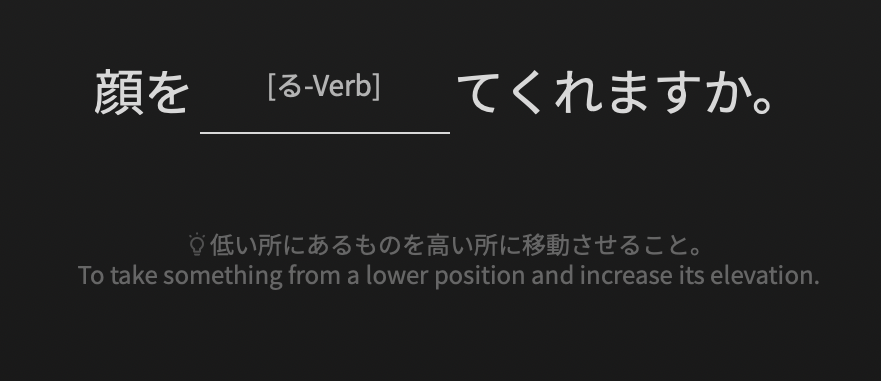I’m not from the bunpro team, but I’ve seen this discussion quite a few times in language learning communities. TLDR: if you want to practice output, vocab flashcards might not be the best way to do it.
Why てっきり and why not: 是非、きっと、 どうしても、確かに?
They can all be translated as “surely”, but they might or might not have the exact same meaning. E.g. てっきり is “surely” in the sense when you’re talking about a belief that turned out to be incorrect, e.g. 「今日はてっきり晴れると思ったのに…」, but it’s not even remotely interchangeable with e.g. どうしても.
Even a really simple word like “to eat” can be translated in many ways, and they can all be correct in certain situations: 食べる、食う、頂く、召し上がる、食事する…
Creating an E->J deck is not as simple as flipping a J->E deck, it would need a lot of rework to be useful. You’d have to think about a way to test 食事する specifically - for all words. Also, the simple version you suggest could actually lead to incorrect understanding if the context is missing (like in your てっきり example).
I’m not saying it’s impossible to make a deck like that, but IMO it’s just not worth the effort:
- way more vocab words than grammar points
- it would need to be personalizable (the same way you can add synonyms to bunpro words)
- it would more than double your daily workload (recognition is way easier than recall)
- and in the end, you’d still need a tutor/equivalent if you want to practice output - you’re not speaking/writing in words but in sentences.
And unless you want to be an interpreter/translator, you won’t even be needing the E->J skill. As I’m writing these sentences, I’m not translating from my native language, I’m just writing in English. In the long run, practicing output shouldn’t even include your native language at all, IMO.
Even the J->E direction, for me it’s more of a J->meaning deck. The meaning is often an English word/expression, but sometimes it’s a word in my native language, sometimes it’s a definition (front: 悲運, back: ひうん: 悲しい運命 - why should I care what’s it called in English?), and sometimes it’s a picture (that’s why I won’t be switching away from Anki any time soon).

